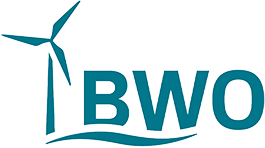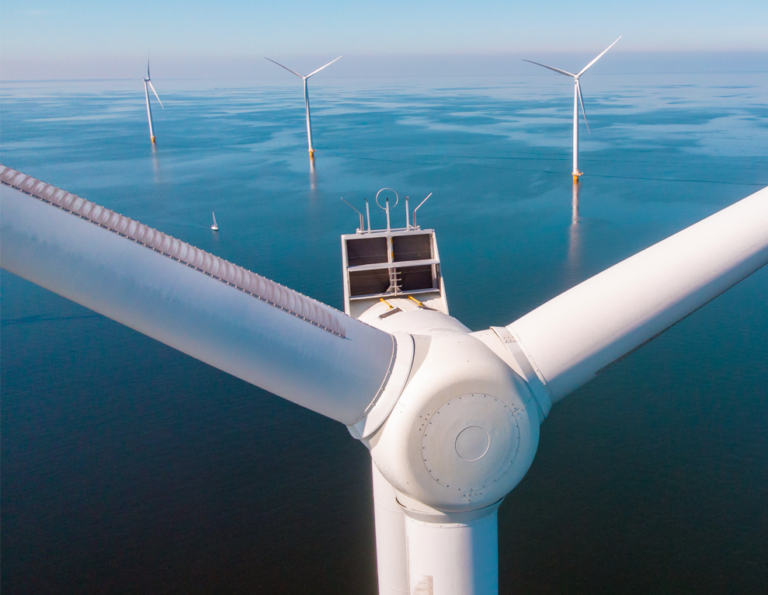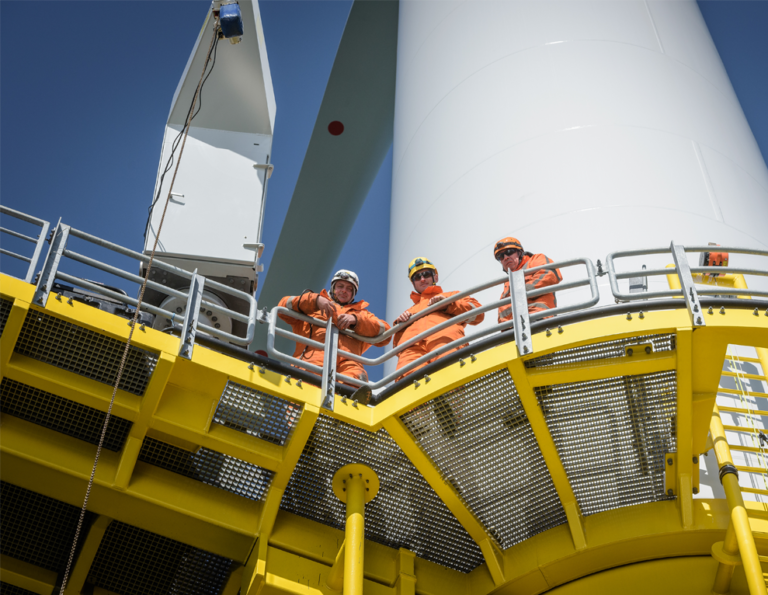Efficient offshore wind expansion requires contracts for differences and long-term goals
Joint letter to political decision-makers: BWO and WAB for the introduction of contracts for differences and a dialogue about expansion target by 2035.
In their joint letter, which was also sent to the Federal Ministry of Economics, the industry representatives emphasize the willingness of the offshore wind industry to take responsibility for the rapid reconstruction of the German economy, which has been weakened by the Corona crisis, in the spirit of the European Green Deal.
"Only if the 2019 GW offshore wind energy decided in October 20 are finally enshrined in law by 2030 will we still have a realistic chance of achieving the climate targets," says BWO managing director Stefan Thimm. “Our member companies and the authorities involved urgently need planning and financing security.” Electricity from offshore wind energy is now more cost-effective than almost any other technology, and the introduction of contracts for difference can reduce the electricity production costs by around 30 percent compared to refinancing Lower power purchase agreements (PPAs). "Through stable investment conditions, contracts for difference would strengthen domestic medium-sized companies, but at the same time end consumers would also be relieved and the international competitiveness of electricity prices would be strengthened," said Thimm.
In addition, the two associations demand long-term expansion goals until at least 2030 and the establishment of a home market for “green” hydrogen from offshore wind energy are central elements that need to be taken into account.
"For further decreasing electricity production costs, long-term planning and a complete value chain are required - this creates jobs and enables cost-effective expansion of wind power at sea," says WAB managing director Heike Winkler. "Maintaining and expanding our complete, innovative value chain is therefore in the economic interest - just as it is in the entrepreneurial interest of industry and medium-sized companies in Germany," adds Winkler.
In order to enable a progressive, competitive start after the crisis, realizable offshore wind projects should also be tendered at short notice. In the medium term, two gigawatts of additional capacity per year are realistic. This should be taken into account in the offshore wind energy law.
"Due to the expansion gap that has already arisen and the jobs lost as a result, as well as generally longer planning cycles, we immediately need targets for the period after 2030 - in accordance with the 'Bremen Declaration'", says Heike Winkler. "This applies to the generation of electricity and 'green' hydrogen," says the WAB managing director. The industry offers an open dialogue on how 35 GW can be technically and economically feasible by 2035 and how the expansion of offshore wind can be used to create a domestic generation market for “green” hydrogen.
In order to efficiently tap important potential for sector coupling, a generation market for “green” hydrogen and suitable framework conditions for research and development are required. We also offer an open debate on the import and export prospects for “green” hydrogen.
About the WAB eV:
WAB, based in Bremerhaven, is the nationwide contact for the offshore wind industry, the onshore network in the northwest, and promotes the production of “green” hydrogen from wind power. The association includes more than 250 smaller and larger companies and institutes from all areas of the wind industry, the maritime industry and research. www.wab.net
Contact person:
Head of Communications
Phone: + 49 (30) 28 444 650
Email: l.dettmer@bwo-offshorewind.de



